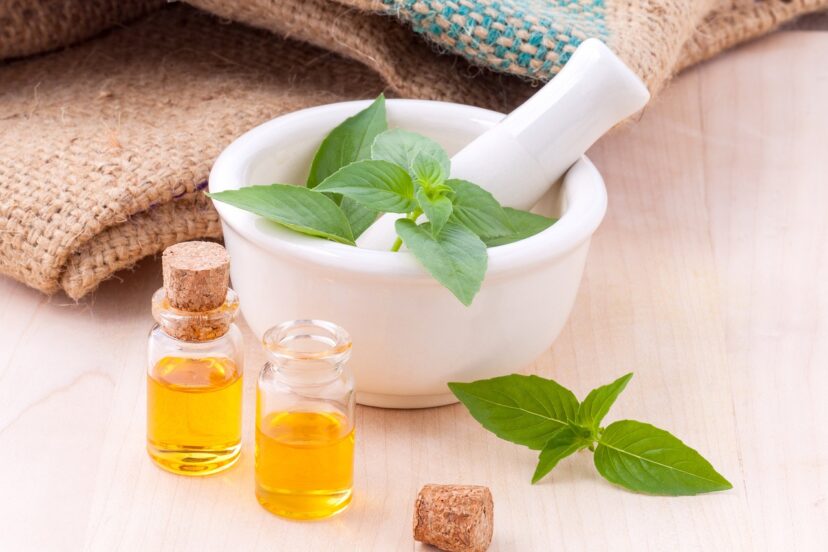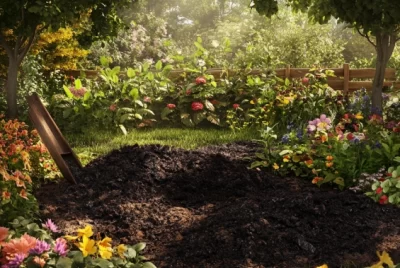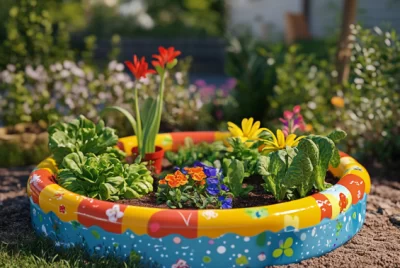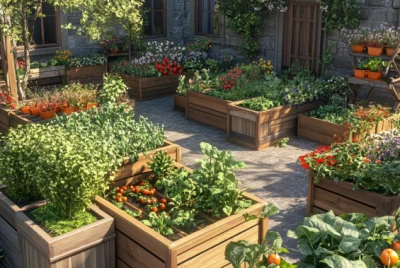Medicinal Herb Gardening: An Introduction
Today we are going to dive into the world of medicinal herb gardening, a practice that is as ancient as it is rewarding. Whether you’re looking to grow herbs for their healing properties, or you’re eager to add a touch of nature’s pharmacy to your garden, you’ve come to the right place.
Understanding Medicinal Herbs
History and Importance
The roots of medicinal herbs stretch back thousands of years, with every civilization having its own set of plants revered for their healing properties. From the peppermint used by ancient Greeks to soothe stomach ailments to the lavender that calmed Roman baths, these plants have been pivotal in traditional medicine.
Types of Medicinal Herbs
There’s a vast array of herbs waiting to be discovered. Echinacea, for instance, is celebrated for its immune-boosting properties, while chamomile can be your ally for a peaceful night’s sleep. The versatility is endless.
Preparing for Planting
Getting started requires a bit of preparation. You’ll want to research which herbs thrive in your region and understand their unique soil and sunlight needs. Remember, preparation is key to your garden’s success.
Challenges of Medicinal Herb Gardening
Dealing with Pests and Diseases
One of the biggest challenges is protecting your precious plants from pests and diseases without resorting to harsh chemicals. It’s a balancing act that calls for vigilance and smart, organic solutions.
Climate and Environmental Factors
Every herb has its preferred climate, and not all gardens are created equal. You’ll need to become adept at creating microclimates or selecting herbs that will flourish in your specific environment.
Space Limitations
Not everyone has sprawling garden spaces. But don’t worry, many herbs are perfectly happy in containers, making them suitable for balconies and windowsills alike.
Benefits of Medicinal Herb Gardening
Health Benefits
Growing your own herbs is empowering. Knowing you have a stash of lemon balm to alleviate stress or ginger to fend off a cold is gratifying and beneficial for your overall health.
Economic Advantages of Medicinal Herb Gardening
Why spend a fortune on herbal supplements when you can grow your own? You’ll save money and have the freshest ingredients at your fingertips.
Ecological Contributions
By gardening, you’re contributing to biodiversity and helping bees and other pollinators. It’s a small step towards ecological conservation that feels as good as it does right.
Starting With Medicinal Herb Gardening
Selecting the Right Herbs
Your herbal journey begins with choosing the right plants. Think about what herbs you frequently use and how they’ll fit into your lifestyle and garden space.
Soil and Sunlight Considerations
Most medicinal herbs love well-draining soil and a generous dose of sunlight. Test your soil, and position your plants where they’ll bask in the sun’s rays just the right amount.
Watering and Maintenance
Herbs don’t like to be fussed over too much. Learn the art of watering—enough to quench their thirst, but not so much that their roots are soaked.
Advanced Tips for Thriving Gardens
Companion Planting
Did you know that some plants play well together? Basil, for instance, is known to help tomatoes grow. This companion planting can enhance your garden’s health and yield.
Harvesting and Storing
Harvesting at the right time ensures maximum potency. And when it comes to storing and drying your herbs properly can mean enjoying them long after the growing season has passed.
Organic Practices
Keeping your garden organic not only benefits your health but also that of the environment. Embrace natural composting, pest control, and fertilizers for the best results.
Engaging the Community in Medicinal Herb Gardening
Educational Opportunities
Gardening can be a gateway to learning. Hosting workshops or sharing your harvest can spread the word about the benefits of medicinal herbs.
Community Healing
Imagine a community garden where everyone contributes and benefits from the collective effort. Medicinal herb gardens can become centers for healing and connection.
Conclusion
Embarking on the path of medicinal herb gardening is both a return to our roots and a step into self-sufficiency. The challenges are part of the journey, making the harvest all the more rewarding. Whether it’s the joy of sipping on homegrown mint tea or the satisfaction of concocting your own herbal remedies, the benefits are tangible and the connection to nature is irreplaceable. So, go ahead, and nurture that herb garden—your health, wallet, and the planet will thank you.
FAQs
What are some easy beginner herbs for medicinal herb gardening?
For those just starting out, I’d recommend herbs that are not only easy to grow but also have versatile uses. Mint is a fantastic starter—it grows readily and can be used for digestive health and as a soothing herbal tea. Basil is another great choice, known for its anti-inflammatory properties and delicious in a variety of dishes. Lastly, chamomile is not just for a calming tea—it’s also an easy-to-grow flower that can help with sleep and digestion.
How can I deal with pests in my medicinal herb garden organically?
Organic pest control starts with prevention. Encourage beneficial insects, like ladybugs and lacewings, by planting flowers they’re attracted to. For direct issues, neem oil can be a gardener’s best friend, acting as a natural pesticide without harmful chemicals. Additionally, practices like crop rotation and using row covers can also help protect your herbs from pests.
Can I grow medicinal herbs in an apartment setting?
Absolutely! Many medicinal herbs thrive in pots and containers, making them perfect for apartment dwellers. Herbs like lemon balm, chives, and parsley can do very well in small spaces, provided they get enough light. South-facing windows are ideal, but if natural light is limited, grow lights can fill in the gap. Remember to water them consistently, but be careful not to overwater.
When is the best time to harvest medicinal herbs?
The best time to harvest most herbs is just before they flower, as this is when their essential oil content is highest, making their medicinal properties strongest. Early morning, after the dew has evaporated but before the heat of the day sets in, is ideal. This ensures that the herbs are as fresh as possible when you pick them.
How can medicinal herb gardening be made into a community project?
Creating a community garden can be a wonderful way to engage with others and spread the benefits of medicinal herbs. Start by collaborating with local schools, senior centers, or community centers to find a suitable space. Organize planting days, maintenance schedules, and educational workshops. Not only does this provide fresh herbs for the community, but it also fosters a sense of connection and shared purpose. Plus, it’s a fantastic way to pool resources and knowledge.




